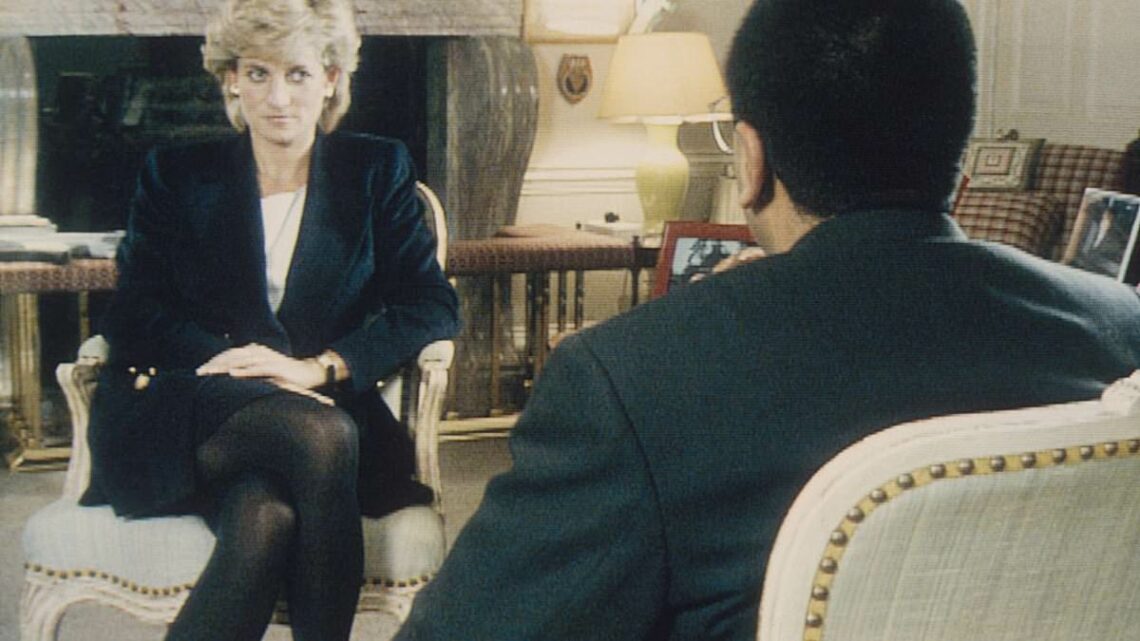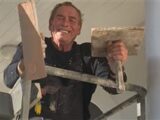
BBC spends £100,000 to keep emails related to Bashir interview secret
September 9, 2023BBC spends £100,000 of licence-payer’s money in bid to keep emails related to Martin Bashir’s infamous interview with Princess Diana secret as documentary-maker fights to make thousands of documents public
- BBC chiefs have refused to release the emails that could reveal explosive details
The BBC has spent £100,000 of licence-payers’ money on a legal battle to keep secret thousands of emails linked to Martin Bashir’s notorious interview with Princess Diana.
BBC chiefs have refused to release the emails that could reveal explosive details about how it handled the scandal as it erupted three years ago.
In 2020, the Daily Mail revealed Bashir duped Diana into a Panorama interview in which she said ‘there are three of us in this marriage’ – referring to Camilla. Bashir had faked bank statements to make Diana think her inner circle was selling her secrets.
An inquiry by Lord Dyson, a former Supreme Court Judge, concluded the BBC covered up Bashir’s ‘deceitful behaviour’ in preying on Diana’s insecurity to obtain the interview.
But documentary maker Andy Webb, who helped expose the cover-up, believes the BBC did not release all of its incriminating evidence. In 2021, he requested all emails between BBC managers and its information office sent from September to November 2000.
Martin Bashir interviews Princess Diana in Kensington Palace for the television program Panorama
The BBC has fiercely resisted his request for more than two years, hiring a legal team led by barrister Jason Pobjoy of Blackstone Chambers, who represented Boris Johnson during the Partygate allegations.
Embarrassingly, the Corporation initially claimed its archive contained no further documents – only to then apologise after discovering 3,200 emails. It then, however, refused to make these public, arguing they are either irrelevant or contain ‘legally privileged’ information.
Now, figures obtained by Mr Webb, show how the BBC forked out more than £75,700 up until July in legal fees fighting his request. A day-long hearing was held at the information rights tribunal last week, pushing the Corporation’s likely legal cost beyond £100,000.
The spending comes after the BBC spent £1.4m on the six-month probe by Lord Dyson.
Mr Webb last night lambasted the Corporation for a ‘shocking’ waste of licence-fee payers’ money and questioned why it was still fighting to keep the emails under wraps.
Martin Bashir (pictured) faked bank statements and showed them to Diana’s brother, Earl Spencer, to gain access to her in 1995 (File Photo)
He said: ‘The BBC say that all these emails I’ve asked for are “irrelevant”. Yet they have spent tens of thousands of pounds in public funds to keep them secret.
‘This looks like a shocking waste of licence fee-payers money and of course deepens my suspicion that the BBC is still covering up. If they have nothing to hide, why on earth don’t they release these documents?’
Under a possible compromise struck last week, the BBC has agreed to let Mr Webb see a sample of 477 of its emails. The BBC apologised at the tribunal for ‘errors’ in its handling of disclosure relating to the Panorama interview.
Earl Spencer, Diana’s brother, told last week’s hearing that a BBC executive falsely claimed he conspired with Bashir to persuade Diana to take part in the Panorama interview.
A heavily redacted briefing by Lord Hall of Birkenhead – head of news at the time and later director general – to the BBC’s governors in 1996 suggested Earl Spencer gave Bashir bank statements belonging to his former head of security.
Asked last week if it was true that he had conspired with Bashir, Earl Spencer, who is backing Mr Webb’s case, replied: ‘No I did not.’
Earl Spencer, Diana’s brother, told last week’s hearing that a BBC executive falsely claimed he conspired with Bashir to persuade Diana to take part in the Panorama interview (File Photo)
He also dismissed a suggestion made by a BBC executive that the allegation was already in the public domain before the broadcaster released Lord Hall’s briefing in 2020.
A BBC spokesperson said: ‘We are committed to resolving legal issues without external support, whenever possible, but there are times when we do need to draw on external legal advice and representation – that can happen when legal actions are initiated by others.
‘In relation to the ongoing proceedings regarding the handling of a Freedom of Information Act request, the BBC has accepted that errors have been made and has apologised to Mr Webb and the Tribunal.
‘The BBC has at all times acted in good faith, has taken extensive steps to try to rectify those past errors and is committed to fulfilling its obligations under the Freedom of Information Act.’
Source: Read Full Article




